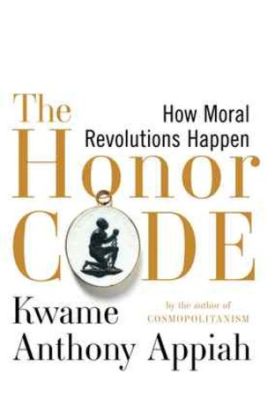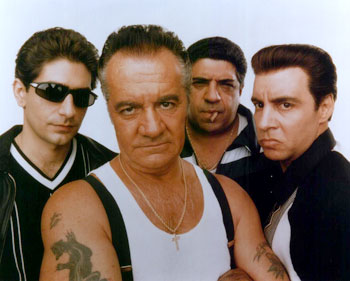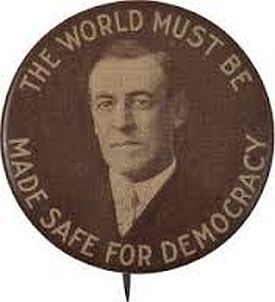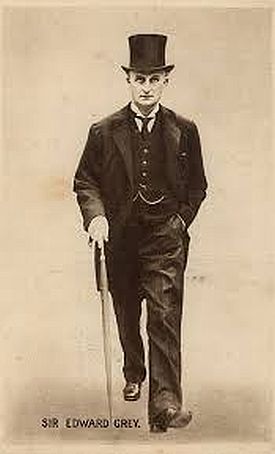The Worth of National Honor
Now that the war has begun, last weekend’s debate in the US Congress about it already seems impossibly remote. Maybe this is because, in all the agonizing about the morality of committing young men to battle, there was almost no mention of that which must be uppermost in the minds of the men themselves once hostilities have started. This is not morality but honor.
It hasn’t been much talked of yet because there is something almost un-American about the idea of a war for national honor. It is second nature for American leaders in this century to think rather in terms of morality than of honor, and to seek to emulate the high-mindedness with which Woodrow Wilson proclaimed, on taking America into the first World War, that “the right is more precious than peace.” Yet even Wilson, once he had defined that right, went on to say:
To such a task we can dedicate our lives and our fortunes, everything that we are and everything that we have, with the pride of those who know that the day has come when America is privileged to spend her blood and her might for the principles that gave her birth and happiness and the peace which she has treasured. God helping her, she can do no other.
From the adumbration of American “principles” he proceeds to “pride” and the “privilege” to sacrifice for them. Morality begins to shade into honor. Wilson knew well enough that you could not lead men into battle with a long face and a more-in-sorrow-than-in-anger attitude. He simply wanted to take some of the national pride that armies live on and reserve it for principle.
In this he was acting in a great American tradition extending right down to the most basic and popular sorts of patriotism: “The Star Spangled Banner” may begin with the flag, but it ends with “the land of the free” as well as “the home of the brave”; “Columbia, the Gem of the Ocean” brings the same elements together and then goes on:
Thy mandates make heroes assemble,
When Liberty’s form stands in view;
Thy banners make tyranny tremble,
When borne by the red, white, and blue!
Nowadays there is something faintly disreputable about the honor and glory part of this patriotic mélange. Assisted by the stark, black-and-white morality in whose terms were fought World War II and the Cold War, the obsolescence of military honor has proceeded to the point where a significant minority of the US Congress appears to think that it’s OK to be the land of the free, but imagines that, by making a home for the just or the wise or the compassionate, it won’t have to be counted among the brave.
What else could Representative John Lewis of Georgia have meant when he said in the debate: “I happen to believe that war is obsolete as a tool and as a means to conduct foreign policy”? Lewis
means that we have at our disposal in this case the more up-to-date tool of economic sanctions. But, although he seems shocked to discover that “war is bloody. It’s vicious, it’s evil and it’s messy”, even he may admit that it may sometimes be necessary as well.
Of course it may not be necessary in this case, but in our debate about whether it is or not it behooves us to consider as well as compassion the question of honor. The Senators and Congressmen spent more time waving body bags than waving flags, but it is at least as important to keep the latter in mind as the former, even from a moral point of view. Rep. Barbara Boxer of California, whose thoughts on peace and war were kindly supplied to her by Bette Midler, said that the debate “is not about egg on our face, it’s about blood on our kids.” Pardon me, but it’s about both.
For matters of pride and shame, of “egg on our face” if you like, are not merely old-fashioned or “obsolete.” Progressive moralists may see them as trivial and childish in comparison with the momentous issues of life and death, but national pride and prestige are also the means by which wars are avoided. If, taught by Saddam Hussein’s success in defying the US, third world strongmen, to say nothing of Messrs Gorbachev and Deng, learn that they no longer need care for the frowns of the “superpower”, for its moralistic vaporings and arrogant assumption of the role of defender of democracy and human rights, what follows? War or peace?
Honor is ultimately about being true to your word, and if American words — of which there has never been any shortage — are not backed up by deeds that bespeak American seriousness, American willingness to sacrifice as well as to preach, then Uncle Sam becomes merely ridiculous on the world stage and the safety of the nation he symbolizes is itself put in danger.
It may be that Americans no longer have the spirit to wish for death before such dishonor. If so then let them become a North American Switzerland, a country content to protect, with the help of geography, its own freedoms and to leave the rest of the world to its own devices. At least the Swiss do not maunder on about freedom in the abstract, or new world orders. Their word cannot be dishonored because they have never given it for anything but their own immediate protection.
But if, as I suspect, it is harder for the US to give up its tendency to evangelize than to become once again the home of the brave and the generous spirited patron of freedom and justice throughout the world, then let us hear no more congressional breast-beating about the human cost of war. The cost of no war is greater. Once again let the world see “Thy banners make tyranny tremble” and we’ll see a lot less of tyranny.
[Top][Back]
Discover more from James Bowman
Subscribe to get the latest posts to your email.




